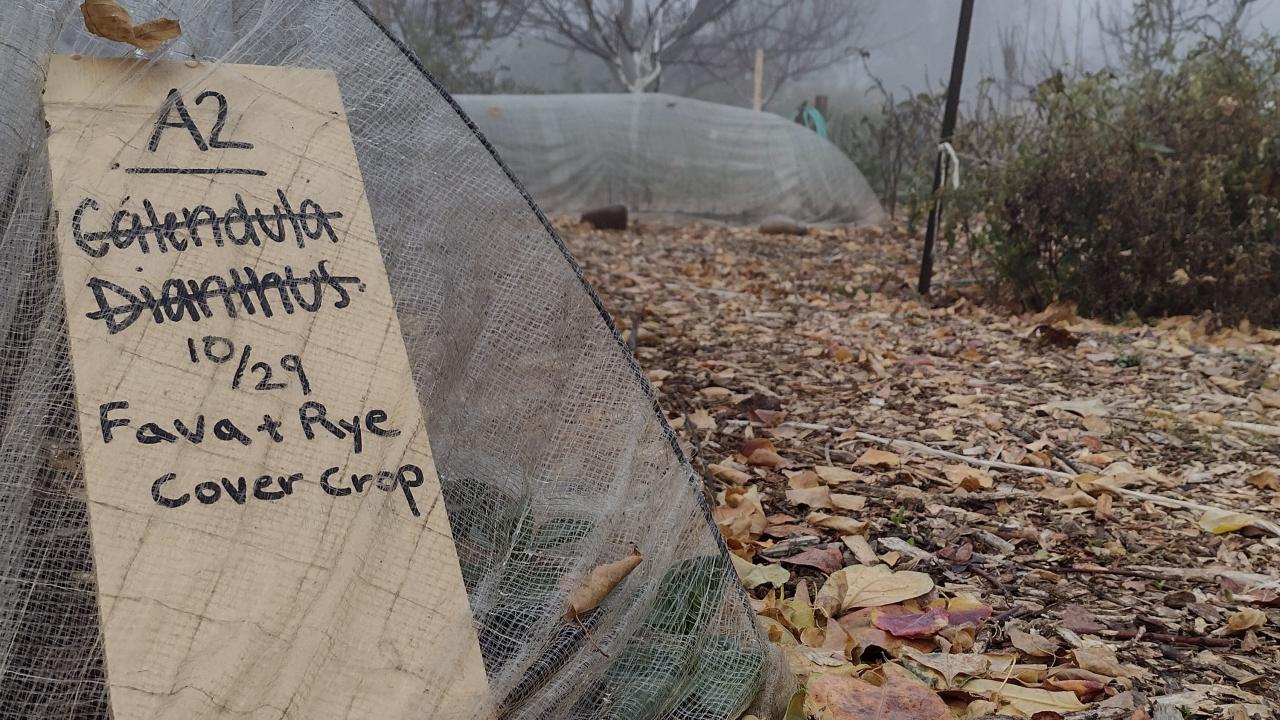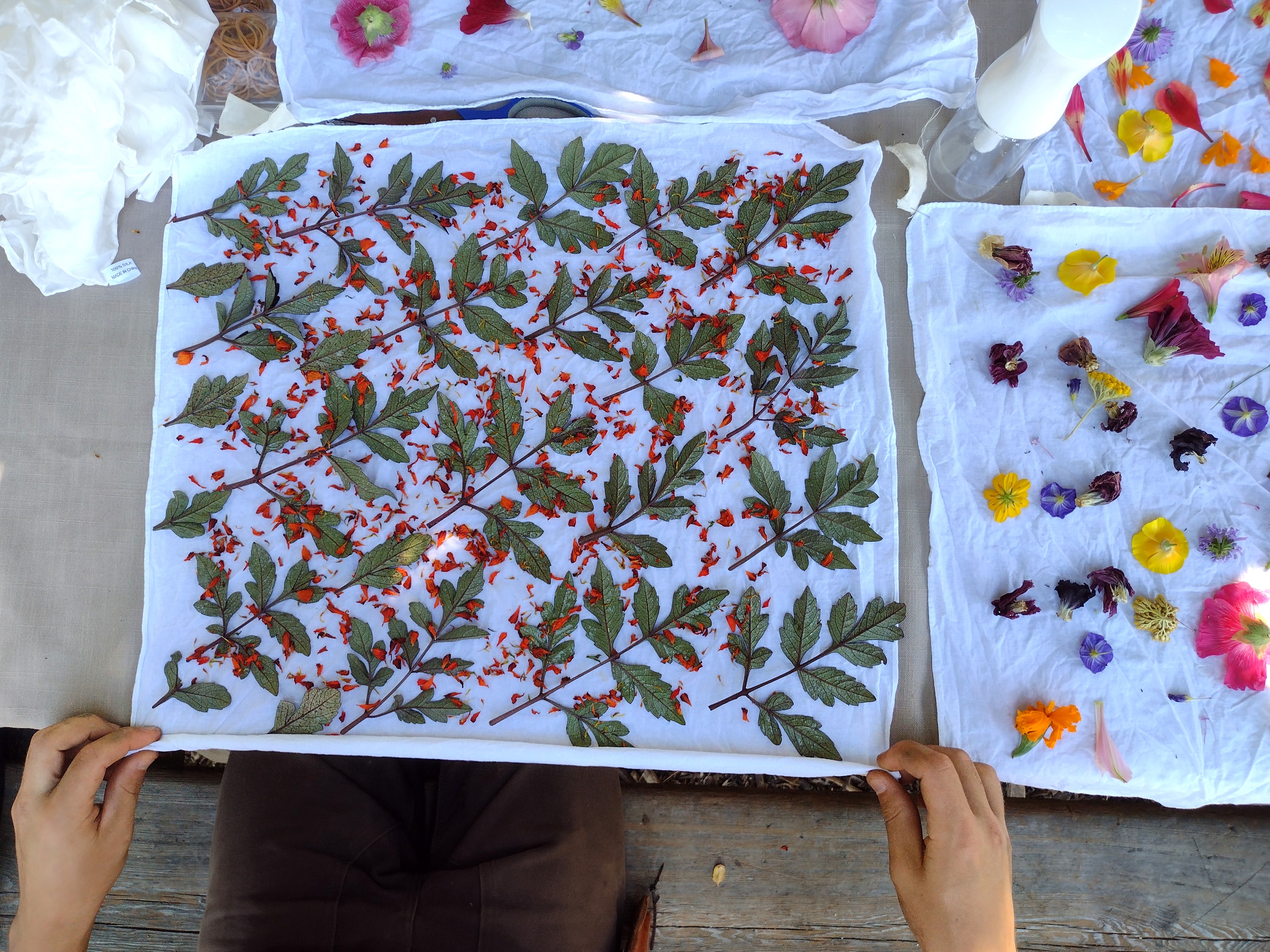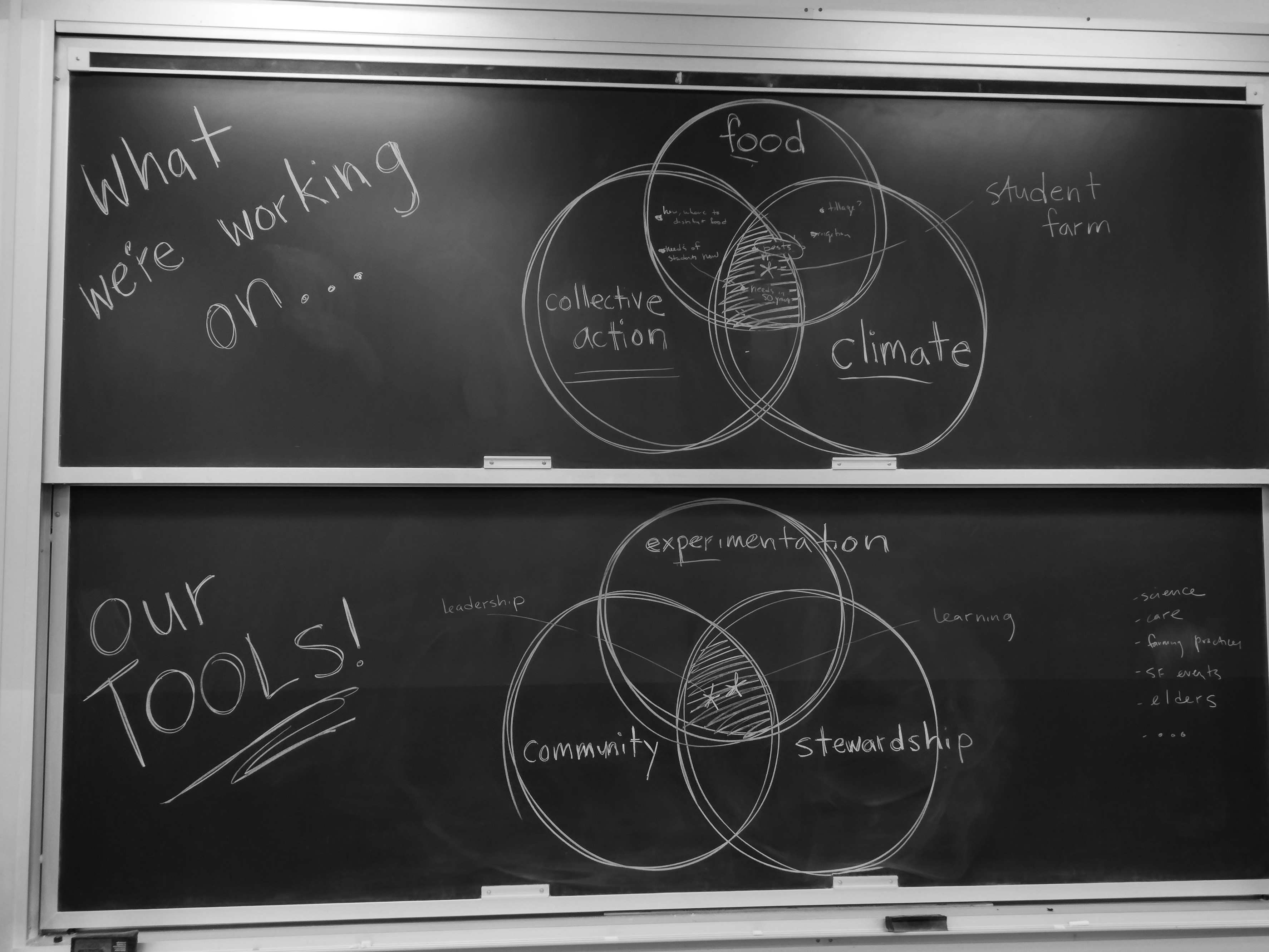
2024 Highlights from the Student Farm
A year of work together toward ecologically, socially and economically sustainable food systems
A fractal is a never-ending pattern. Fractals are infinitely complex patterns that are self-similar across different scales. They are created by repeating a simple process over and over in an ongoing feedback loop.... How we are at the small scale is how we are at the large scale.
Yet we still love to show off shiny things: the moments we remembered to get out a camera. Please read below and reach out to let us know what inspires you, what questions and ideas come to mind, or what favorite moments and pictures we missed.
And at the end of the year, if you have the ability to support experiential learning on the Student Farm, please consider doing so. If you want to support particular programs or activities, please leave a note in the "Special Instructions/Comments" field.
Farm to Fork, Food Bank and... Factory?

One of the longest running food security programs on campus, Fresh Focus harvests food from both the Market and Ecological Gardens, and this year distributed more than 15,000 pounds of food to 16 partners organizations across campus and community. Since arriving in April, the new coordinator, Jocelyn Cavins, has helped the team of Lead Student Farmers (supported by Aggie Compass - thank you!), College Corps Fellows, interns and volunteers expand summer distribution, increase campus partnerships, grow culturally preferred foods for student communities, and lead farm and campus-wide conversations around food sovereignty.

A Knowledge Building (and Sharing) Community

In the summer, weekly community meals and informal seminars give us a chance to connect across the farm and campus, learn more about aspects of sustainable agriculture. Led by staff, faculty, and students, topics this summer, topics included thanobotany, agrivoltaics, yoga for farmers, life-changing tomato sauce, and much more. Above, Austin Spence talks to Lead Student Farmers, interns and volunteers at a Student Farm summer "seminar." He talked to us about birds on and around farms, including biodiversity and field hygiene considerations.

Infrastructure Upgrades

With funds from CAES instructional support, we were able to rehabilitate our greenhouse, an important space for production and teaching. Residing the greenhouse will improve quality of our transplants and allowed us to add roll-up sides, which allow for airflow into the greenhouse that can improve energy efficiency and mitigate some greenhouse pests.

Also with support from CAES, we were able to purchase new picnic tables in the Ecological Garden. If the old tables could talk, they would share a lot of wisdom with these younger relatives; the Ecological Garden has been, and remains, a magical gathering place for the Student Farm community and many others on and around campus.

Seeds | Semillas | Ugbe

Food sovereignty is a pillar of food justice on the Student Farm. Over the last year, the African Food Basket Project and Semillas y Culturas conference have been important parts of this work, alongside ongoing work of Fresh Focus to begin seed saving and convene conversations with groups across campus about what food sovereignty should mean to food security, as well as SCOPE's work with Second Generation Seeds to develop varieties of celtuce adapted to organic production in California. Above, Tana artists print posters for Semillas y Culturas summit, and (below) Liza Grandia and Ecological Garden lead, Julia Schreiber, lead a session about the importance of and care for teosinte.


Emmanuel Momoh, pictured above with Lead Student Farmer (and Knowles Scholarship recipient) Ricki Hatano, received a second Green Fellowship this year to continue building the African Food Basket Project. Among other things, this meant bringing interns into the program, collaborating with a pilot course (AAS192 Agriculture, Race and Justice in Black California), launching an African Graduate Student organization, and trying to grow teff (below). "Ugbe" is the word for seed in Igala, one of the language Emmanuel speaks.


New places and new faces

Though it has run almost two years, the Student Farm Farmstand still feels new. Started by students in the Market Garden with former lead farmer Emma Torbert, the Farmstand has continued to grow in 2024. Running from 12-3pm on Mondays, it facilitates CSA distribution, provides a place for seasonal celebrations and welcome events, has increased connection other campus groups, like the Olive Center, and got us thinking about new ways to distribute food to students and families.

Arts on the farm

Beginning this fall, we have been lucky to engage with a Student Farm artist-in-residence, Eliza Gregory. At our Fall Leadership Kick-off, Lead Student Farmers and College Corps Fellows identify plants they recognize in photos taken from places around the farm. The activity introduced us to new perspectives on our plant community and gave students and staff a chance to hear the experiences, expertise and questions we all bring to this land.

Teaching & Learning in the field

Our tools, our team


Thanks to all our supporters - in the college, on campus, across the community, and on the farm.